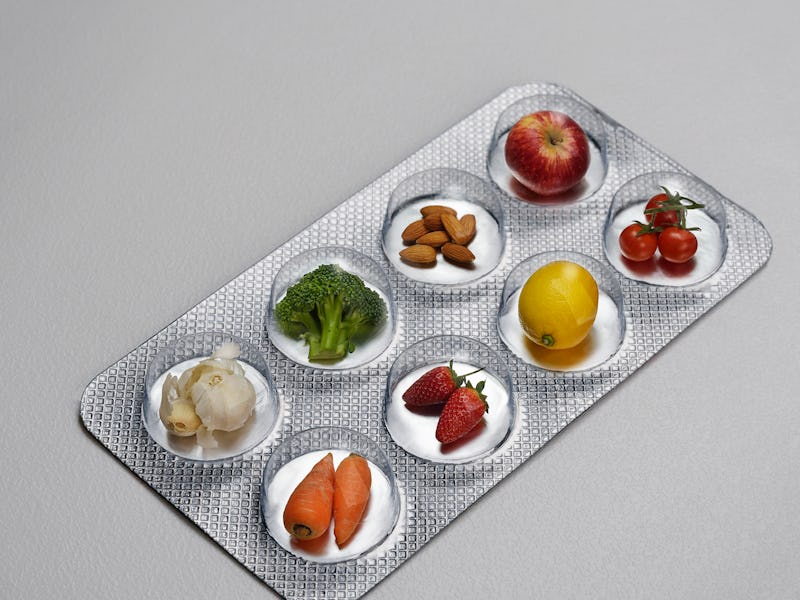Experts explain the 4 powerful ways you can strengthen your immune system
There's no "magic potion" but there are immune-boosting steps you can easily take.

As the effects of Covid-19 ripple through society, people are searching for ways to hijack the immune system to fight the virus. Sales of purported immune boosters like vitamin C and zinc have skyrocketed, while search engine inquiries have surged.
The immune system is complicated, but supporting it doesn't have to be. There are four critical factors you can pay attention to, and in turn, safeguard your health: nutrition, exercise, stress, and sleep.
Still, navigating conflicting advice (like whether it's ginger or green tea that's your best immune-boosting bet) is challenging. Inverse consulted integrative medicine physician, Dr. Taz Bhatia, and exercise immunology expert, Dr. Glen Davison, in an effort to cut through the confusion.
Can you "boost" your immune system?
The immune system can’t be flipped on or off like a light switch at will. It’s a complex, vast network of cells, proteins, tissues, and organs that defends the body against infection-causing foreign invaders like bacteria or the coronavirus causing Covid-19.
The strength of someone's immune defenses depends on their age, lifestyle, diet, physical activity, stress, sleep, allergies, and illnesses such as multiple sclerosis or HIV.
People do have more control over their immune systems than most clinicians admit, according to Bhatia.
"We can do something about our immune systems," Bhatia says. “The concerning part has been sorting fact from fiction."
Davison agrees that caution is necessary when considering advice on the immune system.
“I think the term ‘boost your immune system’ has been massively overused and abused in recent times,” Davison tells Inverse. Often the phrase is used by someone to sell "the latest pill, potion, or promise of wonder."
What can you do to support your immune system?
Exercise — Studies suggest that one of the best things you can do to support your immune system is to exercise.
“Every bout of exercise stimulates immune cells to enter the circulation, enhancing their ability to patrol the body on the lookout for potential pathogens or infected cells,” Davison explains. A workout also primes these cells to respond and deal with pathogens more quickly.
Over the long term, consistent exercise creates a cascade of benefits on mood, stress, sleep, inflammation, and diseases like obesity, type 2 diabetes, and heart disease, which influence immunity, Davison says.
How long you exercise and what exercises you do matter, Davison explains. Overly strenuous or prolonged exercise (like an ultra-marathon) can actually impair immune function in the short term. But people who exercise moderately don't need to worry about negative effects.
Even while social distancing, there are countless ways to get moving: You can do bodyweight exercises like planks and squats, go for a jog, garden in the backyard, or dance in the living room. Sweat or get your heart rate up for about 30 minutes to an hour daily if you can.
Pick what you eat carefully — During a global pandemic, eating well is critical. Research suggests that diets that lack certain nutrients like vitamin E, A, zinc, protein, and essential fatty acids can hamper the immune system. A plant-based diet with lots of fruits, vegetables, and protein can help you get the nutrients you need, Bhatia says.
Bhatia suggests adding in lots of antioxidant-rich foods like spinach, berries, and avocados. She also advises cutting down on sugar, sugar substitutes, and processed foods, which wear down the gut and influence the body’s ability to fight infections.
Pantry staples like apple cider vinegar and ginger also support the gut, which then supports the immune system, Bhatia says.
"You can supplement yourself from here to eternity, but if you're not eating the right foods, you're not going to have a healthy, functioning immune system," she explains.
That doesn't mean that supplements have to be off the table entirely, according to Bhatia. She reasons that vitamin C, vitamin D, and zinc supplements could be helpful in strengthening the body against coronavirus, as well as herbal antivirals like astragalus and pelargonium.
Importantly, the science around these supplements is ongoing and sometimes conflicting: A recent review article cautioned against adding vitamin D while suggesting astragalus may reduce cytokine production and support immune function (but not necessarily with Covid-19). That study endorsed vitamin C, but other scientists caution that, if it helps at all, the effects are modest. Zinc has been shown to help other coronaviruses, but those results may not translate to Covid-19.
Davison questions whether nutritional changes could really make a difference once someone is sick with Covid-19.
"Can good nutrition help patients to clear the infection more quickly, or suffer in a less severe way?" he asks. "We just don’t know the answer to this question at present."
Still, Davison recommends maintaining a healthy and balanced diet, despite the unknowns specific to Covid-19.
Manage stress and get more sleep — Meanwhile, these actions are known to be hacks that can keep the immune system strong. Chronic stress causes system-wide inflammation and increases the production of potentially damaging proteins called cytokines. Meditation and exercise are two ways to bring stress levels down.
"We know that chronic stress is going to keep the body depleted and keep it in a fight or flight mode rather than in a mode where it's ready to heal," Bhatia explains.
Sleep, about eight hours each night, helps the body produce vital immune cells and fight infections.
Ultimately, incorporating these daily actions will keep you healthier and illness free, pandemic or not.